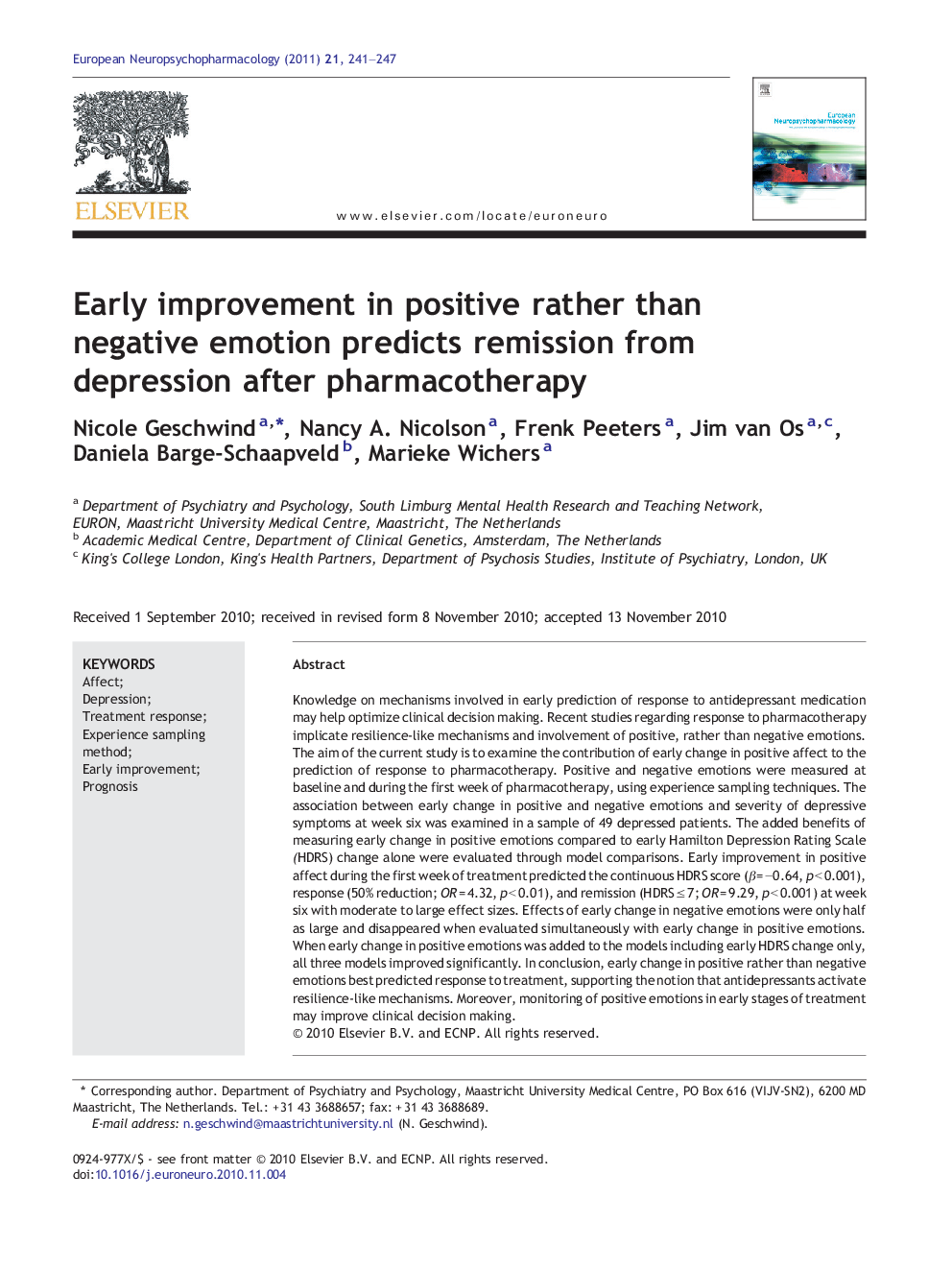ترجمه فارسی عنوان مقاله
بهبود زود هنگام در بهبودی پیش بینی شده احساس مثبت بیشتر از احساس منفی در افسردگی پس از دارو درمانی
عنوان انگلیسی
Early improvement in positive rather than negative emotion predicts remission from depression after pharmacotherapy
| کد مقاله | سال انتشار | تعداد صفحات مقاله انگلیسی |
|---|---|---|
| 74374 | 2011 | 7 صفحه PDF |
منبع

Publisher : Elsevier - Science Direct (الزویر - ساینس دایرکت)
Journal : European Neuropsychopharmacology, Volume 21, Issue 3, March 2011, Pages 241–247
ترجمه کلمات کلیدی
تاثیر گذار؛ افسردگی؛ پاسخ به درمان؛ روش نمونه گیری تجربه ای؛ بهبود زودهنگام؛ پیش بینی
کلمات کلیدی انگلیسی
Affect; Depression; Treatment response; Experience sampling method; Early improvement; Prognosis

